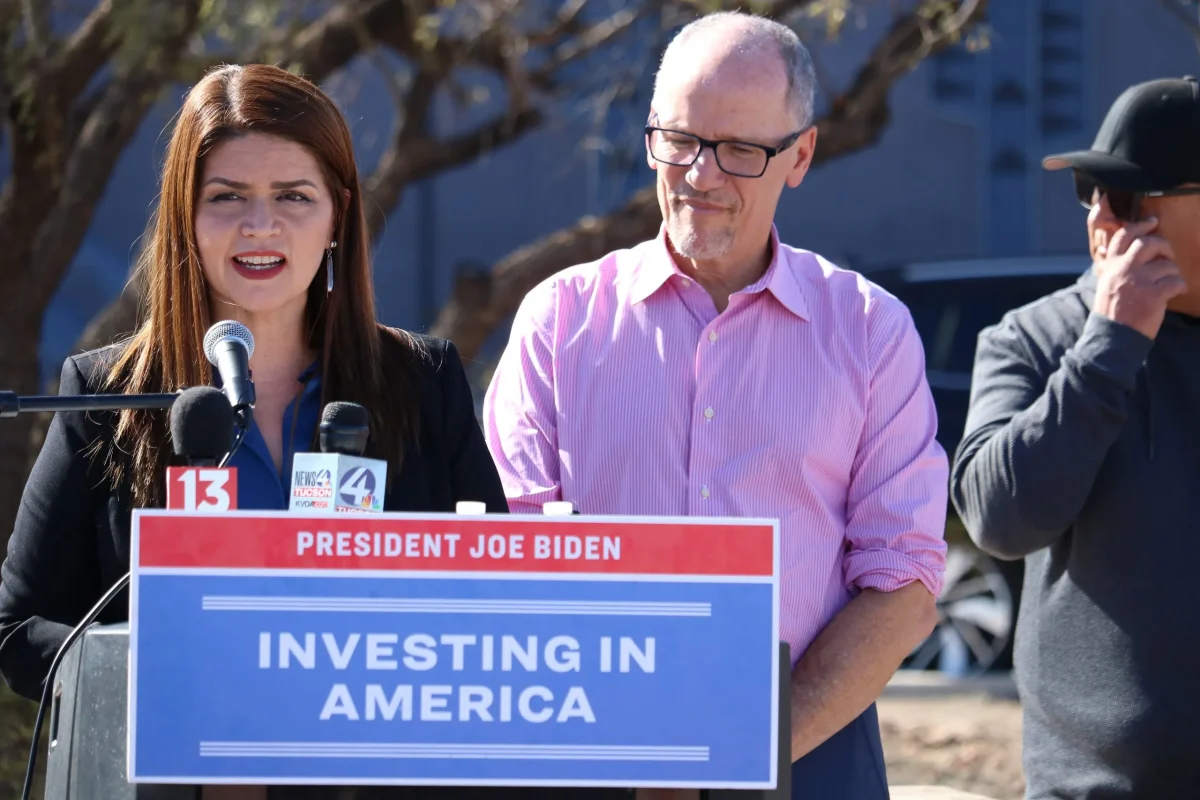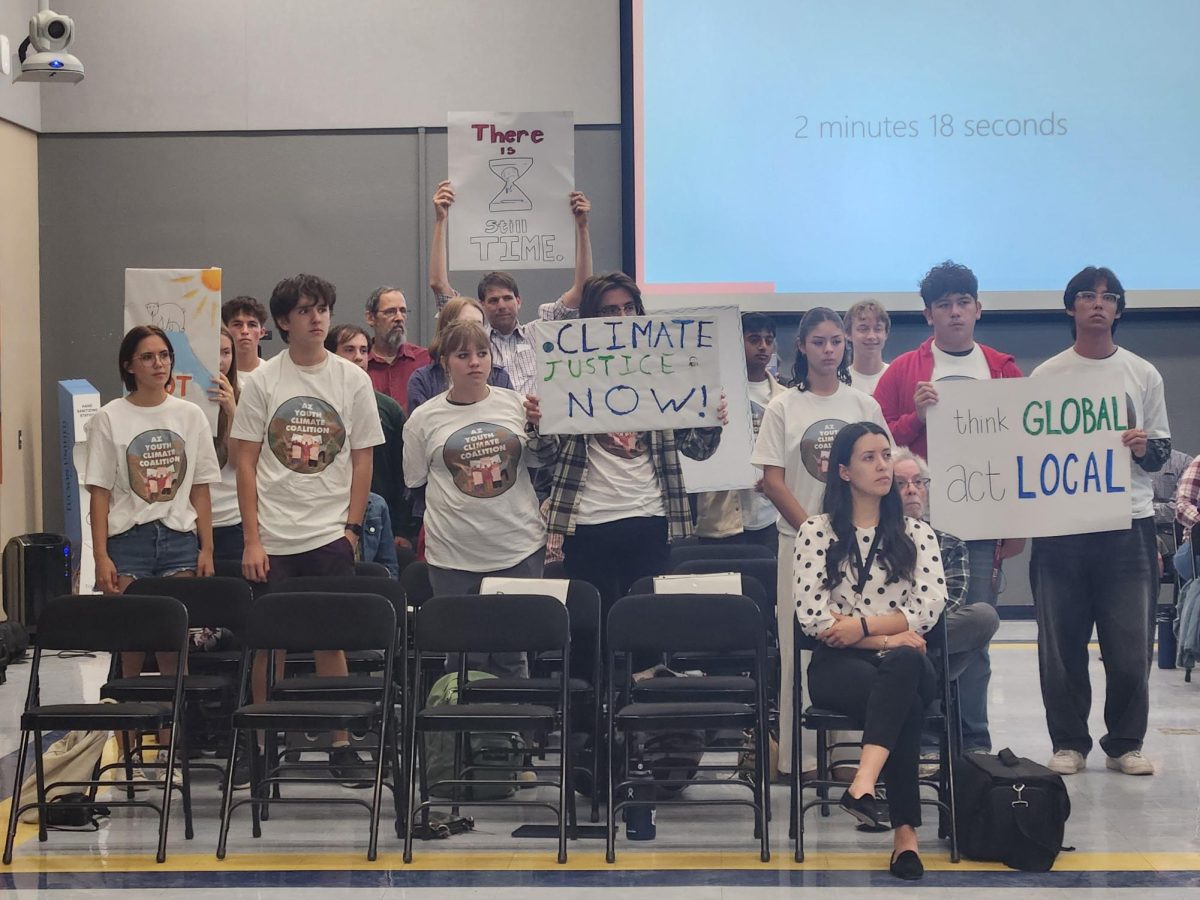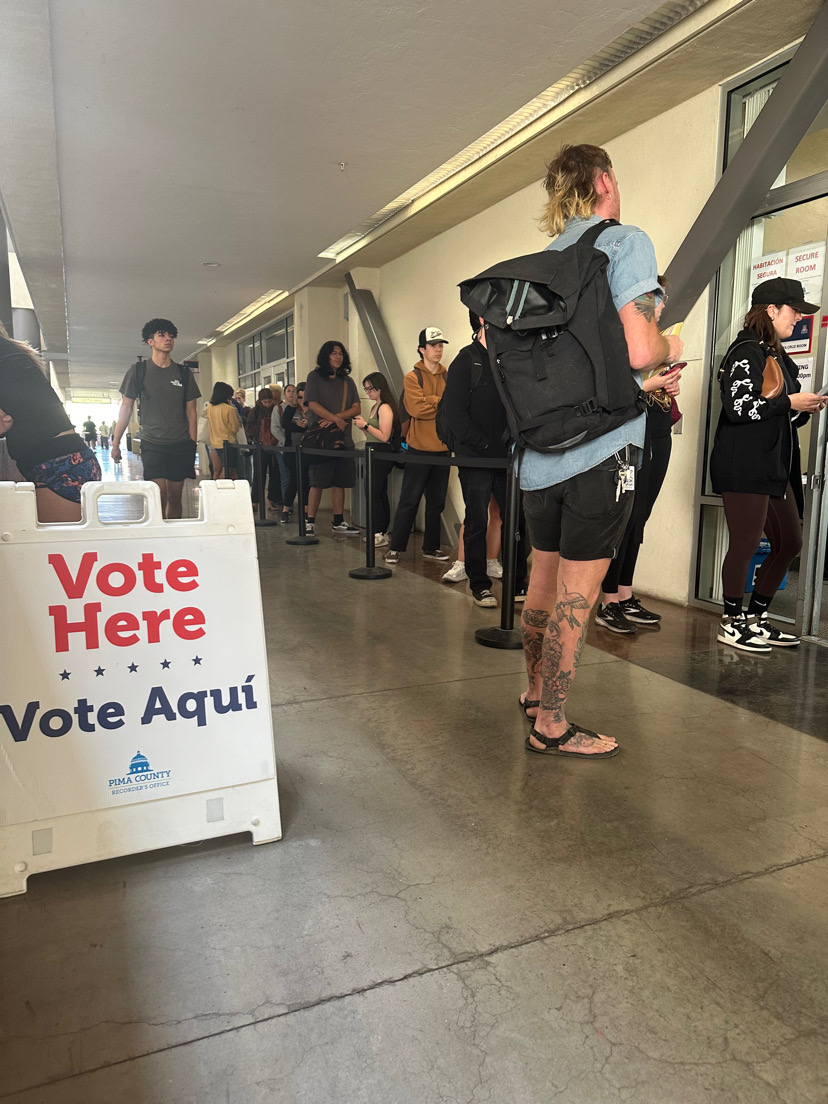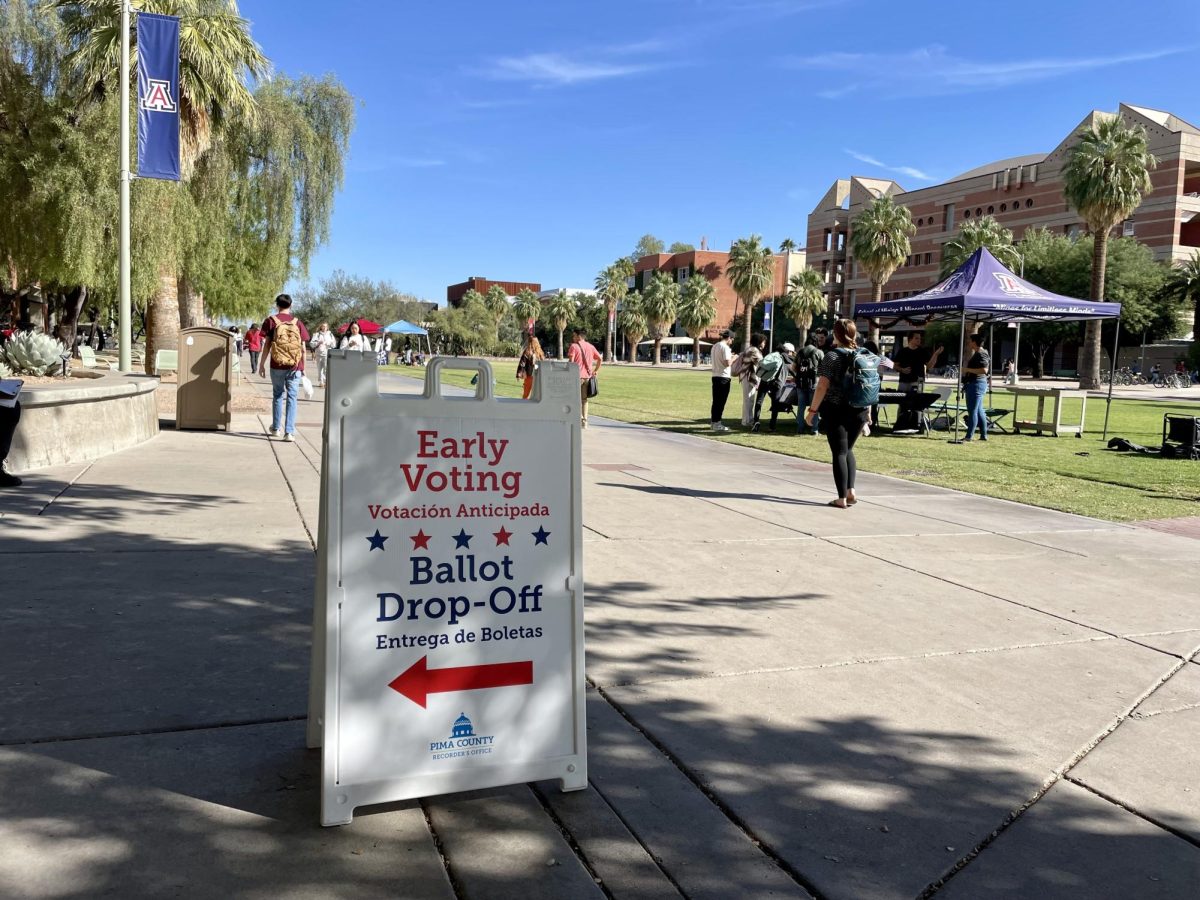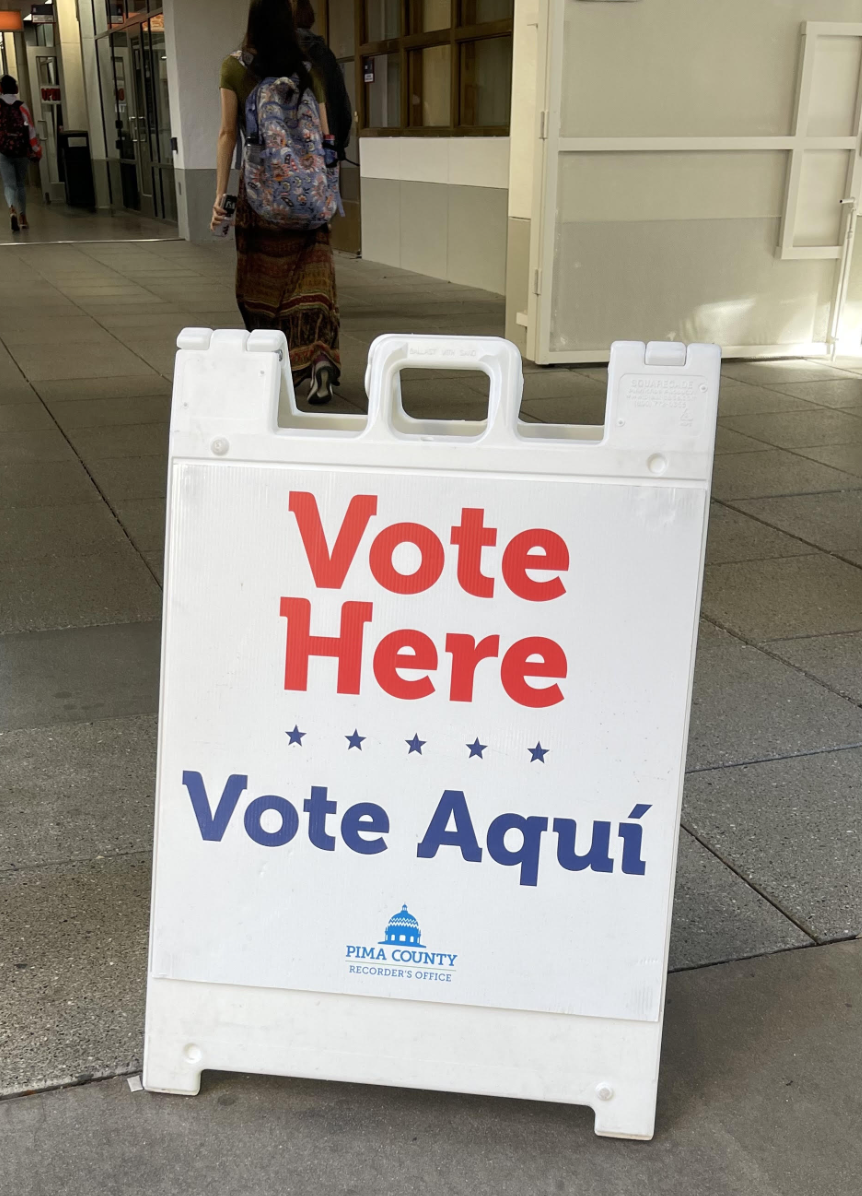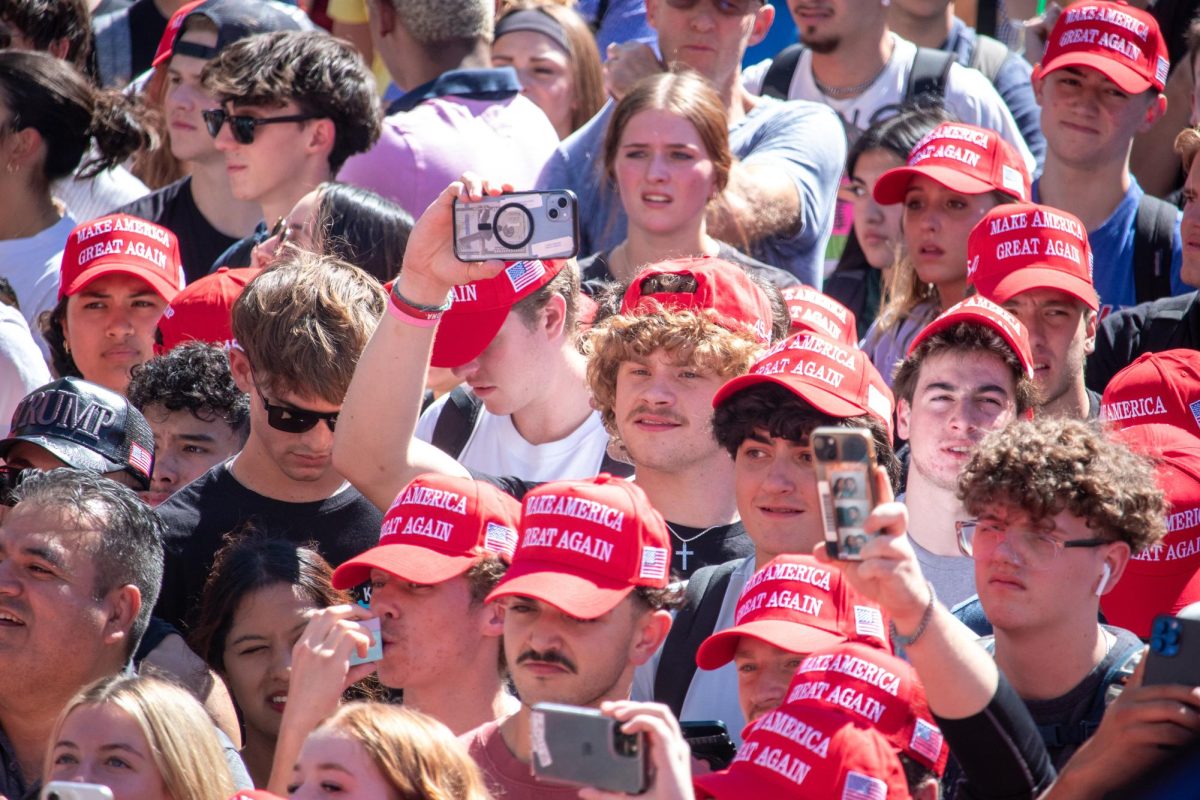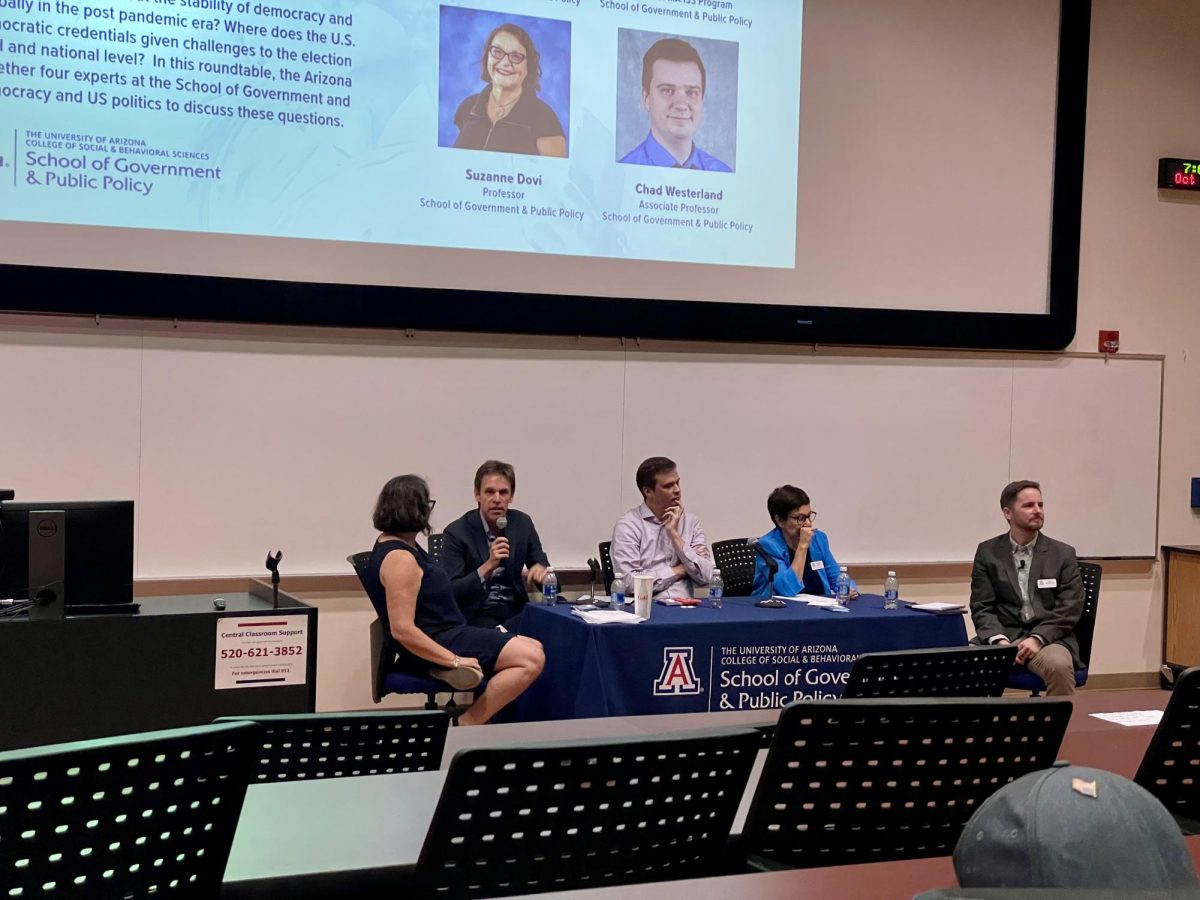This story first appeared in Arizona Luminaria.
La Mar Park, adjacent to Interstate 19 in the Rose Neighborhood, serves as a small clue into the green infrastructure the city of Tucson has planned with the help of federal aid. The bare land will soon become a city park with rainwater harvesting and improved shade.
City Council Member Lane Santa Cruz recalled hearing feedback from the Rose community in 2019 that “park” was hardly a describer for La Mar — it was “a space where people dump.”
After spending the day touring Tucson on an electric Sun Tran bus, Tom Perez, a senior advisor to President Joe Biden, addressed locals in English and Spanish from the park on the south side.
The small piece of land will be one of Ward 1’s first natural desert parks, Santa Cruz said.
“A lot of times when we think of parks we think of green lawns. Well that’s not sustainable in the desert,” Santa Cruz said. “So how do we use what we have: the vegetation, the natural desert land, at our disposal?”
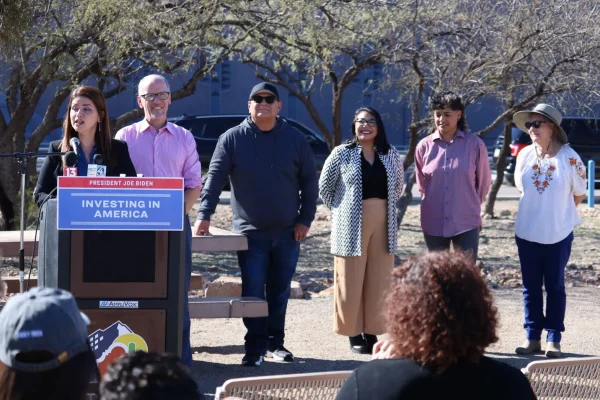
Tucson Mayor Regina Romero speaks at Senior Advisor to the President of the United States Tom Perez’s Investing in America visit on Feb. 20 at La Mar Park. Romero, Perez and city officials discussed federal investments in Tucson.
The Tucson visit, including a meeting with Tucson Mayor Regina Romero, was part of the Biden-Harris Administration’s Investing in America Tour to promote federal investments on local revitalization projects.
The tour is part of Biden’s strategy to show voters some wins before the presidential primary election in Arizona next month. Biden’s approval rating is currently around 39%.
“I need you to get a message to both President Biden and Vice President [Kamala] Harris,” Romero said, turning toward Perez in the park. “Please let them know that their vision on acting on climate change and infrastructure investment through the Inflation Reduction Act and the bipartisan infrastructure bill is a historic gesture.”
Romero, a Democrat, showed off some local projects to President Biden directly in a White House visit last month, and a post with a video of her showing Biden some before-and-after photos was viewed more than 600,000 times on Twitter.
City wins millions in federal dollars for local projects
Romero and Perez listed millions of dollars in previously announced federal grants in recent years as a way to show local economic benefits of the Biden administration’s plans.
“Nuestros números son nuestras voces,” Perez said at the event. “Our numbers are our voices.”
Tucson received a $5.1 million urban forestry grant last year to continue the development of Tucson Million Trees, an initiative to plant one million trees in Tucson by 2030. So far, 100,000 trees have been planted since 2020, said Nicole Gillett, Tucson’s urban forestry program manager. Perez said Tucson was the first city he visited with such a position.
A grant of $21.5 million from the Inflation Reduction Act will be put towards the purchase of low-emission and electric buses. By 2025, Tucson will have a zero-diesel bus system, Romero said.
Close to 3,000 cleaner American-made buses — 24 of which are in Tucson — were funded nationwide, Perez said.
Two years ago, the city won a Rebuilding American Infrastructure with Sustainability and Equity Grant to build an upgraded bridge on 22nd Street. With another $25 million from this grant, the 22nd Street Bridge Revitalization Project will play out in the next two years, Romero said.
Neighbors who will be affected by the bridge upgrade had expressed safety concerns at public meetings when the initial plans had cyclists and pedestrians in the middle of six lanes of cars. The most updated plan has bike lanes on the outside, however neighbors say the update could cause traffic backups.
Perez visited the Tucson Airport Remediation Project on Irvington and I-19, a groundwater treatment system that is removing carcinogenic polyfluoroalkyl substances — known as PFAS — from contaminated water. Romero said a $33.5 million loan forgiveness grant has been given to remediate the area.


